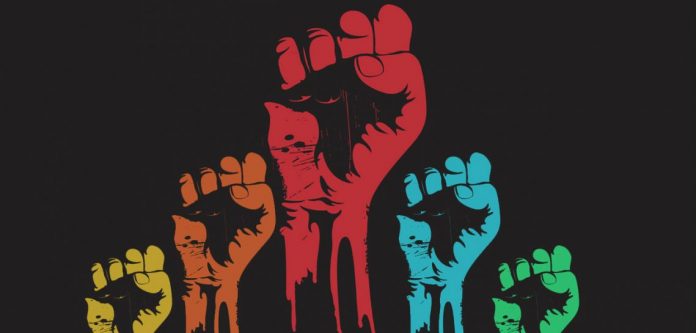This article is written by Saswata Tewari from the University of Petroleum and Energy Studies, Dehradun. This article explores the impact of multinational corporations in the exploitation of human rights, as well as the laws in place to combat them.
Table of Contents
Introduction
It is unlikely that any discussion of the corporate veil would be complete without mentioning the case of Salomon v. Salomon (1897), which established this idea. According to the facts, Salomon transferred his shoemaking business to a company called Salomon Ltd, which was formed by his family members. The transfer fee was paid to Salomon in the form of shares and debentures with a floating charge on the company’s assets. However, the company fell bankrupt within a year, and the liquidators attempted to cancel the debentures, but the company’s assets were inadequate to pay out the debentures. The creditors claimed that Salomon & Co. had no independent existence and that, as a one-person entity, Solomon is the sole one running the company according to his wishes. The House of Lords dismissed the charges, ruling that “after incorporation, Salomon and Co. Ltd was a different legal body entirely from its members, with its rights and duties.” It was made apparent that once a company is incorporated, it becomes a separate legal entity with different motivations and behaviour than its members and promoters.
This concept was widely recognized, and it was backed up by the courts in several cases. For instance, in the case of King v. Portus (1949)), it was expressly inferred that the corporation is a separate entity from its shareholders, who are not liable to creditors and do not own any stake in the company’s property. Sometimes the case was also utilized to prove the contrary like in the case of Apthorpe v. Schoenhofen Brewing Co (1899), where the Court of Appeal, despite an argument based on Solomon v. Solomon, concluded that the business conducted in New York was technically that of an English corporation due for the English company tax.
Even though the concept of the corporate veil has helped organizations trapped in unfavourable situations survive, there have been cases where it has had negative consequences for human rights. This principle has protected entities from personal liability for their actions in the company’s name and the company’s owner, shareholders, or other subsidiaries may have used the corporate veil to hide their wrongdoings and bad intentions. But as it is said that people catch up to the wrong things, officials and governments have since developed policies and organizations to combat the false use of the corporate veil.
The interrelation between the corporate veil and the human rights
To take advantage of legal and tax advantages, multinational corporations (MNCs) form parent-subsidiary partnerships. Using technical improvements, MNCs can now quickly expand their global footprint and profit margins by forming more subsidiaries. However, creating subsidiaries in other countries makes it more difficult for victims of corporate subsidiaries’ human rights violations to receive restitution from the parent company. As it is understood now, any well-established MNC’s corporate liability will be structured in such a way that whenever one of the firm’s agents violates any human rights, that agent will be held liable, and the liability risk will remain in the jurisdiction where the subsidiary is headquartered jurisdiction where the parent company is headquartered, rather than in the jurisdiction where the parent company is headquartered.
Now in terms of transnational trade, MNCs set up subsidiaries in developing nations to take advantage of lower labour costs. Hundreds of thousands of people, including children, are subjected to horrific human rights violations as employees in countries all over the world. Child labour and forced labour are two examples. Children have even been forced to labour in opium fields or dangerous jobs such as mine work, where they must mix lethal compounds like mercury with gold ore with their bare hands. As a result of such events, human beings lose their human rights, dignity, and natural status. Corporations, on the other hand, can easily avoid responsibility in such circumstances since plaintiffs are unable to sue the parent firm for the injury caused by the subsidiary company in their native country.
When a subsidiary of a corporation violates human rights or transnational human rights, the parent firm tries to absolve itself of responsibility by claiming to be a separate entity hidden behind the corporate veil. It’s important to remember, however, that no matter how far a subsidiary company is from its parent, it still has a lot of influence over its subsidiaries, including how they treat human rights. In these cases, the corporate veil must be pierced to reveal the individuals hiding behind the veil and exploiting their separate legal identities to commit unjust acts.
Business and human rights in India
Multinational corporations (MNCs) are not new to India, as India has a long history of attracting foreign investment. Companies have been formed to serve as subsidiaries of global corporations.
National norms
Being influenced by the common law, the Indian corporate law is regulated by the Ministry of Corporate Affairs (MCA) and the Company Law Board at the federal (Union) level (CLB). The MCA has the jurisdiction to investigate firms and impose penalties if they do not comply with the terms of the Companies Act 2013. Securities Exchange Board of India is in charge of the securities market, while the Foreign Exchange Management Act 1999 and the Reserve Bank of India are in charge of all FDI in India. Any corporation that participates in anticompetitive agreements can be sanctioned by the Competition Commission of India. It is vital to understand the laws that govern the day-to-day operations of these MNCs’ Indian subsidiaries.
India has also been known to ratify the following international conventions to advance human rights in the country:
- Universal Declaration of Human Rights 1948
- International Convention on Elimination of All Forms of Racial Discrimination 1965
- International Covenant on Economic, Social and Cultural Rights 1966
- Convention on the Elimination of All Forms of Discrimination Against Women, 1979
Also, the Indian Constitution grants fundamental rights to all citizens. This includes:
- Equality before law (Article 14 of the Indian Constitution)
- Freedom of Speech and Expression (Article 19(a) of the Indian Constitution)
- Right to Life (Article 21 of the Indian Constitution), and
The list could continue indefinitely. Only the government can be held accountable for these fundamental rights. Government corporations are considered the state, and as such, they can be penalised if they violate any of the fundamental rights guaranteed by the Constitution.
There are also some acts and regulations that are relevant to the subject of business and human rights in India, such as:
- Protection of Human Rights Act, 1993
- Consumer Protection Act, 1986
- Competition Act, 2002
- Special Economic Zones Act, 2005
- Labour laws such as the Contract Labour (Regulation and Abolition) Act 1970, Minimum Wages Act 1948, Factories Act 1948
- Environmental protection laws such as the Environment (Protection) Act 1986, Forest Rights Act 2006
International norms
The impact of business on society is both positive and negative. The country has profited from growth, prosperity, jobs, and infrastructure, but the legal system around human rights abuses has had negative consequences. Many frameworks have been designed to protect human rights in foreign nations, acknowledging the contradiction of corporations working in foreign countries and exploiting human rights.
John Ruggie was the UN Secretary-Special General’s Representative who created the “Protect, Respect, and Remedy” framework, which was produced between 2005 and 2011. The three pillars can be explained as:
Protect
The state must protect civil society against human rights violations by third parties and private businesses.
Respect
All companies should respect human rights in the world.
Remedy
The pillar of remedy ensures fair access to justice.
These three principles are also related to the UN framework, United Nations Guiding Principles on Business and Human Rights, which is relevant to MNCs all over the world. According to the Guiding Principles, corporate responsibilities to protect human rights are voluntary, and so should not be expected to be enforced through legal means. However, because the Guiding Standards’ requirements are more akin to societal expectations than moral obligations, national law would be required to protect such principles. But then the obligations within the Guiding Principles can be seen more like social expectations rather than moral obligations, it would be necessary to guarantee such principles by national law. The United Nations (UN) and the Organization for Economic Cooperation and Development (OECD) have produced cross-border laws that deserve special attention. These efforts are aimed at overcoming the barriers to obtaining judicial relief.
Businesses have a legal obligation to protect human rights wherever they do business. The main purpose of this framework is to enhance awareness among corporate executives about the potential and actual consequences of their actions. The government’s role to protect human rights must be separated from corporate social responsibility. Individuals and communities should be able to easily find answers to their challenges. Corporate social responsibility is a one-time project. Because the form of human rights violations can change depending on operations, time frames, and commercial ties, putting such ideas into practice is a fluid process. The three pillars of guiding principles are to protect, respect, and remedy. The three pillars highlight particular individual activities that can be taken to respect human rights in areas of government and corporate responsibility.
The Zero draft was recently drafted to control international human rights law, transnational corporations’ actions, and other commercial enterprises. The state has primary responsibility for promoting, respecting, protecting, and fulfilling human rights and fundamental freedoms, and states must protect third parties, including businesses, from human rights abuse on their territory or elsewhere under their jurisdiction or control, as well as guaranteeing respect for and implementation of international human rights treaties.
Remedy for the violation
The state’s obligation to protect human rights by regulating private sector activity is widely recognised, and it has now been incorporated into international human rights law. States are expected to take all reasonable measures, consistent with international law, to prevent private-sector behaviour that could lead to human rights breaches. International duty of the state shall be occupied where such violations occur which the state could not permit without imposing an irrational burden on such a state. Where a violation has occurred, the responsibility to protect includes a duty to provide access to remedies.
States’ extraterritorial human rights commitments, including the duty of states to instruct the corporations they have in place to influence, wherever those firms manoeuvre. In contrast to this position, UN treaty authorities have repeatedly said that nations should take steps to prevent human rights violations overseas by businesses that are governed by their laws or have their headquarters or principal place of business under their authority. In particular, the committee on economic, social, and cultural rights affirms that states parties should prevent third parties from violating the right in other countries if they are capable of manipulating these third parties through the use of legal or political means, following the United Nations Charter and applicable international law.
The corporate veil would also help to solve a problem with the guiding principles that haven’t been properly addressed. One of the driving concepts of corporate veil is the demand for human rights diligence as part of business responsibilities to respect human rights. However, it is unclear to what degree this criterion holds a business liable for ensuring that other corporate entities with which it has an investment link act in following human rights. In practice, however, victims of translational business corporate human rights abuses may face significant challenges if such a responsibility is not established.
The key principle for protecting people’s rights in industrial development is the establishment of mechanisms that ensure full and effective participation, as well as the communities’ “free and prior informed consent,” as happened in Jagatsinghpur, Orissa, where the Orissa government agreed with POSCO to allow an integrated steel plant, which was met with frequent protests. To get out of this dilemma, businesses and governments must recognise that the FPIC principle (free, prior, informed, and consent) is emerging as a technique for developing programmes.
- Free – This implies no coercion, intimidation, or manipulation.
- Prior – This implies that consent has been sought sufficiently in advance of any authorization or commencement of activities, and respect time requirements of the indigenous consultation.
- Informed – This implies that information is provided that covers the nature, size, pace, reversibility, and scope of any proposed project.
- Consent – This implies that consultation should be undertaken in good faith.
Case studies
Vedanta Sterlite Plant Issue (2013)
The facts of this case are that the Vedanta’s Sterlite copper plant’s foundation stone was placed in Tamil Nadu in 1994, and the Tamil Nadu Pollution Control Board (TNBC) awarded a licence to the steel plant for operation in 1996, without requiring an NoC from the Environmental Impact Assessment. Locals complained in 1998 that the steel plant’s smoke was causing headaches, coughing, and choking and that the groundwater was being poisoned with metals such as arsines, lead, selenium, cadmium, copper, and aluminium.
The factory was shut down in 1998 by a Madras High Court judgement for the reasons mentioned by the National Environmental Engineering Research Institute (NEERI). Unfortunately, NEERI once again gave Sterlite the green light to operate as previously. Residents of Tuticorin complained about harmful water discharge in 2005. As a result, the TNPCB issued a closure order in 2013 because Sterlite’s Sulphuric Acid Plant-1 emits roughly three times the legal levels of sulphur dioxide and operates without TNPCB renewal consents. However, the Tribunal declared the Tamil Nadu government’s ruling unlawful, reduced a minimum penalty of 100 crores and cleared them to operate.
The TNPCB issued a notice in 2016 for dumping copper slag in the Upper River in Tamil Nadu, resulting in water pollution. Again a second unit in the factory was developed for expansion in 2018. Residents staged massive rallies near the factory, and protestors hurried to the collector’s office in search of justice. As a result of violent incidents, police opened fire on unarmed civilians, killing 12 individuals and injuring 90 others.
The Supreme Court of India overturned an NGT judgement authorising the reopening of the Sterlite facility in Thoothukudi on February 18, 2019. The tribunal lacked authority to hear the plant’s owner, Vedanta, appeal against the shutdown, according to a bench led by Justice Rohinton Nariman. Justice Nariman granted the Tamil Nadu government’s appeal against the National Green Tribunal verdict, allowing Vedanta to seek temporary relief from the Madras High Court.
The case of Plachimada (2003)
In this case, the Coca-Cola company agreed with an agreement with the Karnataka State Pollution Control Board (KSPCB) to commercialize up to 1.5 million litres of water from six borewells located within the industrial property. Coca-cola was permitted to extract groundwater to fulfil its production demands of 3.8 litres of water for every litre of Coca-Cola. As a result, the water table dropped and the quality of groundwater in the area deteriorated. A comprehensive study of the water found a high concentration of calcium and magnesium ions. Furthermore, the colloidal slurry produced as a byproduct was marketed as fertiliser to villages, in which unsafe quantities of toxic metals and the known carcinogen cadmium were discovered. As a result of everything, local people’s health has been jeopardized, and the farming business in the area has been destroyed.
Conclusion
In today’s busy world, companies have to look out for and safeguard human rights at all costs. The rate at which human rights are getting violated has reached such a high level that they are in the ambit of getting compensated. Companies are making huge profits at the expense of innocent people’s rights and the deterioration of the environment. Developing the business is good but it cannot be at the cost of human life. It is the need of the hour for the corporations to take serious commitment towards corporate social responsibility and companies which are in default of breaking their obligations to corporate social responsibility should be held accountable. However, the final ball lies in the court of the Government as it is their responsibility to take adequate steps following international law while taking disciplinary actions against the companies that violate human rights at the time of incorporation as it is always better to stop it before it gets too late.
References
- https://www.lawyersclubindia.com/articles/piercing-of-corporate-veil-human-rights-abuses-by-susidiaries-and-controlled-supply-chains-13844.asp
- https://www.lawaudience.com/corporate-business-in-india-a-menace-to-human-rights/
- https://media.business-humanrights.org/media/documents/files/media/documents/cividep-manual-corporate-accountability-india-apr-2011.pdf
LawSikho has created a telegram group for exchanging legal knowledge, referrals, and various opportunities. You can click on this link and join:
 Serato DJ Crack 2025Serato DJ PRO Crack
Serato DJ Crack 2025Serato DJ PRO Crack











 Allow notifications
Allow notifications


